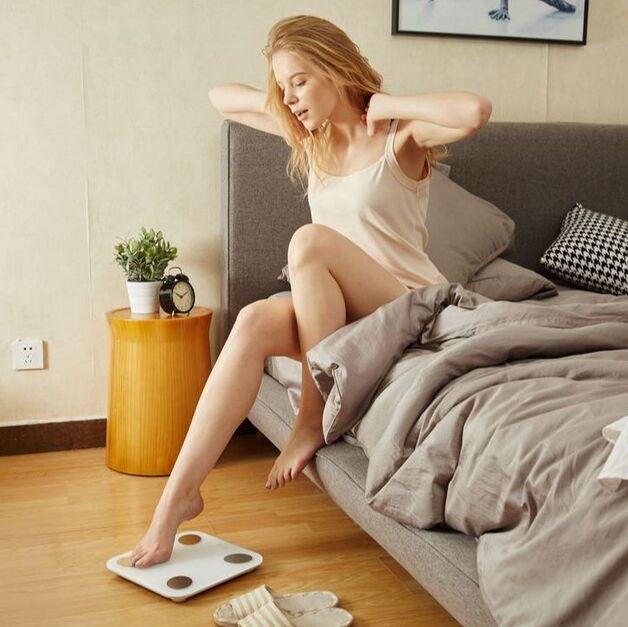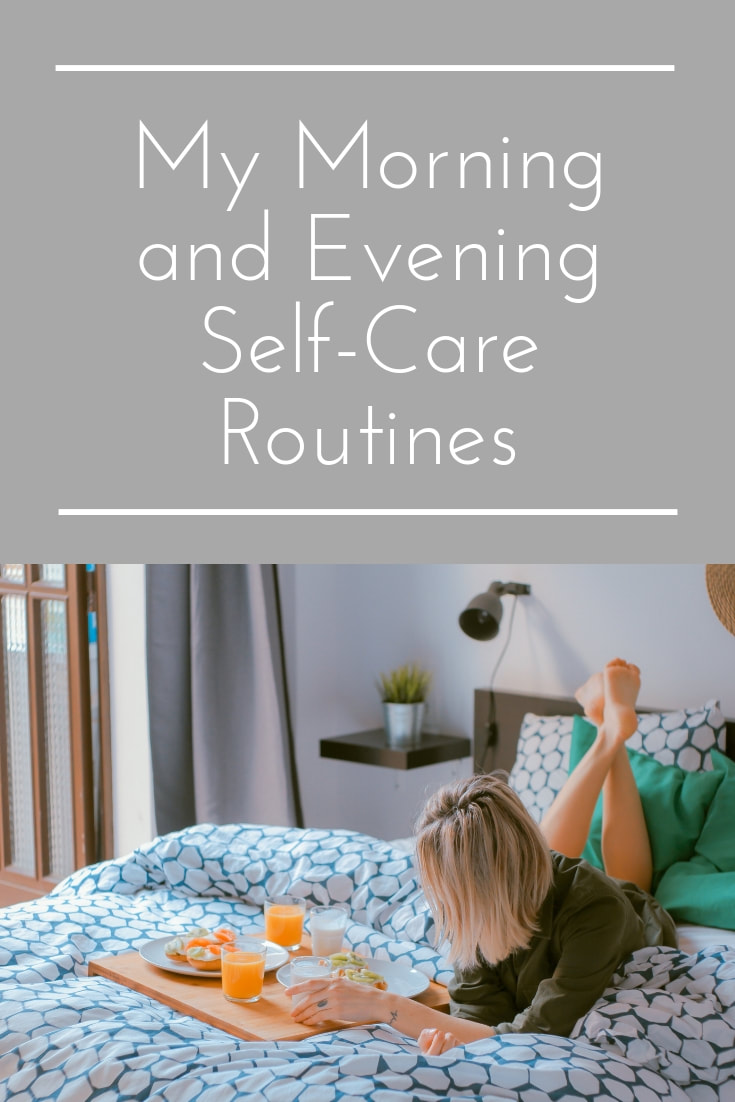|
This article was first published on ProHealth on March 27th, 2018. It was later removed for reasons outlined in this notice. Most of the links on this post are informational, but a few are affiliate links to help maintain this website. When I was first diagnosed with Lyme disease, I had problems with digestion. My gut wasn't breaking down food and I either had constipation or loose stool. My doctor suggested magnesium and probiotics, and the next day my stomach troubles were gone. I was shocked that supplements could work so fast. Supplements have a reputation of needing to build up in your system over time in order to be effective, but there are some that work more quickly than others. People with Lyme disease are usually on numerous medications and supplements, so when you take a handful of pills it’s hard to detect which ones are improving your symptoms. My experience with magnesium and probiotics made me curious about what other supplements people can feel the effects of after taking, and/or what symptoms they will experience if they neglect to take these. So, I asked the members of my Lyme disease support group to weigh in. 8 Supplements For Lyme Disease You Can Feel Working: 1. Magnesium Magnesium is one of the most important minerals in the body and has over 100 functions, so when you are magnesium deficient you will definitely feel it. People with magnesium deficiency report muscle cramps, pain, anxiety, fatigue, and insomnia. The amount of time it takes to feel improvement from these symptoms is correlated to the level of magnesium deficiency in the body. However, some people report relief from muscle cramps and improvement in sleep after only 1 or 2 doses of a magnesium supplement. For problems with digestion, Magnesium Citrate, in liquid or pill form, has been reported to help loosen the stool and relieve constipation relatively quickly. 2. Probiotics Usually, probiotics are for long-term regulation of the gut bacteria, but you may be able to notice a difference right away. Whether or not you can feel a probiotic working depends on the type of probiotic you are taking. If you are taking a probiotic for digestive issues or constipation they may work within a few hours. Two common types of bacteria, Lactobaccillus and Bifidobacterium, can double within three hours, which may cause a noticeable change. 3. Melatonin This popular sleep aid is known for working swiftly. Melatonin is a hormone that your body naturally produces when it starts getting dark, to prepare you for sleep. With the increase in artificial light in our lives with smartphones and computer screens our bodies get confused and melatonin production decreases. Supplemental melatonin isn’t affected by light, so it helps people fall asleep and stay asleep. Most people feel the effects within thirty minutes. 4. Liposomal Glutathione Glutathione is a powerful antioxidant that prevents oxidative stress, and to helps to build up tissues and the immune system. The liposomal form of this supplement is especially fast acting, because it bypasses lining of the gut and enters into the bloodstream. It also is delivered directly into the cell, which optimizes the effects of the nutrient. By helping the liver detox, liposomal glutathione also allows you to fall asleep faster and have a deeper, more restful sleep. This in turn makes you feel more energized the next day. Better yet, you don't have to use it every day to feel the benefits.
5. Iron Chronic illness and iron deficiency often go hand in hand. When you are iron deficient you feel tired and can have pale, dry skin, heart palpitations, headaches, and dizziness. Your doctor can order a blood test to determine if you iron deficiency or have difficulty absorbing iron. Once some people start supplementing with iron they report feeling an increase in energy. It all depends on how low your iron stores were to begin with and how well your body absorbs iron. Even if you don't feel it immediately, you will most likely feel the fatigue lift within a few days or weeks. Supplementing with iron can be especially effective when a woman is menstruating. Because women lose iron during that time, an iron supplement may help give them a boost. 6. CoQ10 CoQ10, or coenzyme Q10, is a naturally occurring substance, which the mitochondria use to produce energy and which makes our muscles contract correctly. It’s also a strong antioxidant. Research on CoQ10 is still in the early stages, but research shows that it may help to prevent heart disease. Because of its cardiovascular benefits, some people feel improvement in their cardiac symptoms when they take CoQ10. Some even report a reduction of heart palpitations, which are a common symptom of Lyme disease. Remember, if you have heart palpitations, it's important to be evaluated by a doctor before taking anything new. CoQ10 should also be used under a doctor's supervision, because it can increase the risk of bleeding and lower blood sugar. 7. B12 You’ve probably heard that B12 shots are instant pick-me-ups, but some also experience a rapid reduction in fatigue after taking a B12 supplement. Because the B vitamins are water soluble, they are absorbed more quickly into the body than fat soluble vitamins, like A,D,E, and K. People with Lyme disease often feel tingling in their hands and feet but report that it goes away after B12 supplementation. It’s important to note that if you are severely deficient in B12 it may take a while to notice a difference in energy and other symptoms of B12 deficiency, like tingling, muscle weakness, and dizziness. 8. ATP ATP stands for adenosine triphosphate. It's the chemical in the body that powers the cells. In the body ATP is produced during the Krebs Cycle, which is basically how cells metabolize and create energy in the body. Some people with chronic fatigue report a significant increase in energy levels when taking ATP. In fact, when they don’t take it they feel tired and sluggish. Also, because ATP works in the muscles it can help to ease muscle pain. Remember, supplements will have a different effect on everyone, depending on the unique chemistry of each individual. Work with your doctor to find the best supplements for you and your health issues. Whether you can feel them working or not, supplements are an important addition to any health plan. "It's not what you look at that matters, it's what you see." - Henry David Thoreau
0 Comments
Most of the links on this post are informational, but a few are affiliate links to help maintain this website. Life can be unpredictable, that's why I developed morning and evening self-care routines that help me stay grounded amidst the occasional chaos. I made sure it was a routine I could do while traveling to most locations, because it's important to keep some regimen even when you are away. Morning Routine: 1. Wake up at 6am. It's important to wake up and go to bed at the same time every day. I find that 6am is my ideal wake up time. It gives me enough time to do the rest of my self-care before I need to be anywhere. I don't always make it out of bed at this time, but my goal is to get as close to it as possible. 2. Meditate for 5-10 minutes. Immediately after waking up (and feeding my dog), I sit in my meditation space and meditate. I currently meditate for about five minutes and I'm working up to ten. 3. Affirmations. After I meditate I read my daily affirmations. I save a list of them on my phone in Google Keep. They are little reminders of where my headspace should be every day even if I get off track. Here is a sample of my affirmations: "I am present with a generous spirit." "I am in agreement with life and resist nothing." "I keep my power for myself and in turn I am a powerhouse for good in this world." "My body is in balance. I am strong, healthy, and flexible." 4. Yoga poses. I start with three cat/cow poses and then do three half sun salutations. This gets my spine warmed up and the blood flowing. Since I've started doing this every morning I'm now able to (barely) touch my toes, which is a long way from where I was a couple of years ago. It's a testament to how small changes over time can make a big difference. 5. Essential Oils. After I get ready I put a mix of 1 drop of this peppermint oil and 1 drop of this lavender oil on my temples, forehead, and behind my ears. This wakes me up and gets rid of the morning fogginess. Then, I use a product called Tummy Rub by Rocky Mountain Oils, a drop or two on my stomach, liver area, and sternum to help with digestion throughout the day. 6. Breakfast. When I'm ready for the day I prepare breakfast. May people skip breakfast, but because I need to take my morning pills I need at least a little something in my stomach. Most days I have a smoothie and a scrambled egg. After that I'm ready to start my day. Evening Routine: 1. Lay out my clothes for the next day. Before I get ready to turn in I always choose my outfit for the next day. It helps me visualize what I'll be doing throughout the day and saves me time in the morning. If I'm planning to go to a yoga class, I lay those clothes out, too, so I won't have any excuses when the time comes to go. 2. Dry brush. Right before I get into my Epsom salt bath (see #3) I dry brush to wake up my lymphatic system. I used to do it in the morning, which is the ideal time to do it, but I find I have more time to do it as part of my evening routine. Here is a an article on the technique: A Step-By-Step Guide to Dry Skin Brushing. 3. Epsom salt bath. Then, I take a 20-30 minute Epsom salt bath. I turn on my playlist of inspirational songs and relax away the stressors of the day. This helps with muscle aches and helps me fall asleep easier. 4. Essential oils. At night, I do the same essential oil routine that I do in the morning. The peppermint oil helps with any lingering evening headaches, the lavender is calming to prepare for sleep, and the Tummy Rub makes sure I'm digesting while I sleep. 5. Gratitude journal. When I get into bed I write in my gratitude journal. I start with writing "Today I am grateful for…" and I list 5-10 things that went right for me in the day. This practice helps me stay mindful of my blessings. 6. Reading. The final thing I do every night is read. It helps shut down my busy mind, so I can fall asleep. I usually read a page or two from the current month's O, The Oprah Magazine, which I read cover to cover every month, and then turn to whatever book I’m reading until my eyes get droopy. To understand the importance of routine is to also understand the importance of doing things that aren't routine. Because I do these small things every morning and evening it keeps me grounded to be more open-minded and adventurous during the day. Success and joy in life comes from a beautiful balance between routine and adaptability to change. "You'll never change your life until you change something you do daily. The secret of your success is found in your daily routine." - John C. Maxwell This article was first published on the Global Lyme Alliance blog on March 20th, 2018. Most of the links on this post are informational, but a few are affiliate links to help maintain this website. Last summer Global Lyme Alliance sponsored an event in Chicago called the Sublyme Soiree. I invited my brother and sister-in-law to come with me. During the event, a doctor spoke about the impact of Lyme disease on his patients. I was so grateful that my family had made the effort to come to the event and that they were able to learn about the impact of Lyme from someone other than me. It was the first time in a long time I truly felt seen. Invisible illnesses are not easily detected by our outward appearance. Because our illnesses are invisible we often feel invisible to the outside world. We are often mistaken for being "all better" or "not very sick at all." In addition, many people with invisible illnesses, like chronic Lyme disease and autoimmune disorders to name just a few, experience flare-ups followed by periods of relief, which leads to further misunderstanding. If you have a loved one who has an invisible illness here are some ways you can show them that you care. 7 ways that you can show someone with an invisible illness that you “see” them: 1. Never underestimate the power of snail mail. You know the feeling when you open up your mailbox and among the bills and junk mail, there is a card with your handwritten name on it? It always brightens your day. It's nice knowing someone took the time to pick out a card or postcard at the store, write in it, buy a stamp and send it in the mail. Sending a card, postcard, or care package to someone who is chronically ill shows you care. Who knows? Maybe your card will arrive when the person is having a bad day and your compassion will make them feel less isolated. 2. Find a way to have fun on their terms. If you invite someone who's chronically ill to an amusement park they are likely going to say no. If you invite them to tea, a short walk by a lake, or to a movie, they are more likely to say yes. It depends on their stamina. Some days are better than others. Try to think of an outing that doesn't require a lot of energy. If the person is homebound, maybe you can binge a television show with them while sharing a pint of ice cream. Remember chronic illness is inconsistent. On a good day people with chronic illness are able to do more but on a bad day, they may not be able to leave the house. The problem is we don't know when we will have a bad day. It makes it difficult to plan, so try to be understanding if the person needs to change or cancel plans. 3. Never question a symptom or diagnosis. People with chronic illnesses are constantly being questioned by those in the medical field and also by people close to them. Frequently, we are questioned about our fatigue and pain—two things that can't be seen and that change from day to day. If you want to show a person with chronic illness that you care about them, take them at their word. If they say they are tired, they are tired. If they say they are in pain, they are in pain. 4. Ask about triggers. Each person with chronic illness has different triggers. Personally, I'm triggered when people joke about my diet choices or comment about antibiotics being bad for me. The reason these are triggers for me is because I don't want to be on a restricted diet or take antibiotics, but both make me feel better, so I do what I have to do. For a person with chronic illness, each treatment decision comes with careful consideration and a great deal of anxiety. Once that treatment decision has been made, an outsider adding their two cents only causes more anxiety on behalf of the patient. If you are seriously concerned about a person’s treatment decision there is a way to discuss it without judgment. 5. Learn something about their illness. There is a wealth of information online about every illness. Take a few minutes and read up on what your loved one is going through from a reputable source. If your friend or family member posts a link with information, click on it and gain some new knowledge. Recently, my dad alerted me to a new documentary on ME/CFS (Myalgic Encephalomyelitis or Chronic Fatigue Syndrome). I didn't know he knew that was one of my symptoms. It meant a lot that all those times I was talking about my fatigue, he was listening and wanted to learn more about it. 6. Attend an awareness event or donate to the cause. If a loved one asks you for a donation or to attend an event for a cause, do what you can to make it happen. We all know how difficult it is to ask for money or time from someone, and when it is related to a friend or loved one's personal health challenge it can make them feel even more vulnerable. This, of course, is not always possible. There may be financial and time restrictions that are insurmountable. It is not an expectation, but know that it will mean a great deal to the person. 7. Don't treat them like they are a different person. When someone is diagnosed with a chronic illness they may change their behavior, but remember they are still the same person. Try not to avoid them or treat them with kid gloves. We may feel different in many ways, so we count on those close to us help us remember who we are. At the end of the day, one of the most effective things you can do is ask yourself, "If I were sick, what would I want someone else to do for me?" Your friend or family member won't expect you to do everything on this list. They will be pleasantly surprised if you do one or two of these things. "Have compassion for everyone you meet, even if they don't want it. What appears bad manners, an ill temper or cynicism is always a sign of things no ears have heard, no eyes have seen. You do not know what wars are going on down there where the spirit meets the bone." - Miller Williams |
WelcomeI'm Kerry (She/Her/Hers) and I am a licensed therapist, group facilitator, poet, writer, & speaker. This is a place to acknowledge and validate our suffering and trauma, while also learning how to turn toward aliveness and spaciousness. Categories
All
Archives
April 2024
|
|
Copyright © 2024 Kerry J Heckman All rights reserved. Disclaimer.
|
|







 RSS Feed
RSS Feed